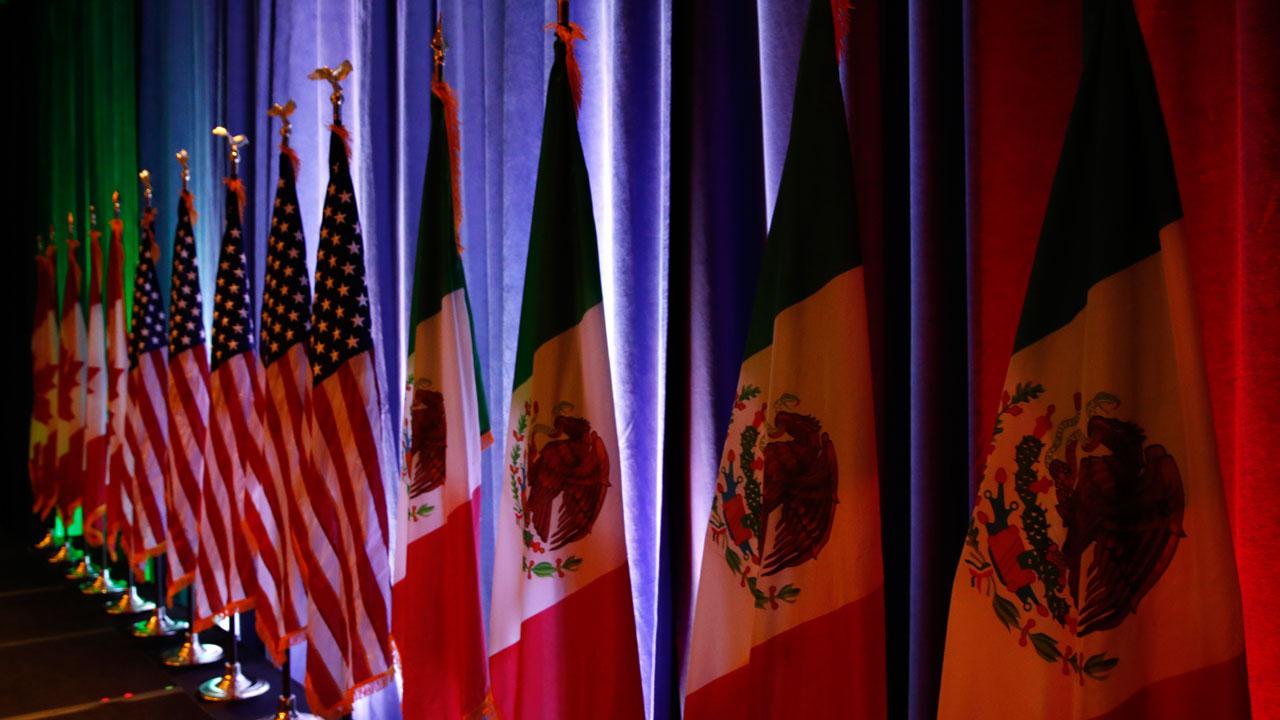White House, corporate America flood Congress in USMCA push
Wall Street attention is fixated on what appears to be the final stages of U.S.-China trade talks, but for many American companies the ongoing negotiations are second to another priority: Getting Congress to approve the new trade agreement between the U.S., Mexico and Canada.
Known as the USMCA, the White House and top business groups have launched an all-out assault on Congress to try to assuage concerns from lawmakers over the deal’s enforcement mechanisms and pharmaceutical protections, as well as educate new members on the intricate details of the update to the North American Free Trade Agreement.
The White House has spoken to over 290 lawmakers and their staff on the specifics of the deal in the last two months alone. And in recent weeks, United States Trade Representative Robert Lighthizer held meetings with Democrats on the Ways and Means Committee, the bipartisan Problem Solvers Caucus and the moderate Blue Dog Democrats. Earlier this month, he also was invited by Speaker Nancy Pelosi, D-Calif., to speak at the House Democratic Caucus.
On top of those efforts, the private sector is in the midst of its own blitz. The National Association of Manufacturers, for example, has conducted over 100 meetings on Capitol Hill since the start of 2019, largely with Democrats, according to Vice President of International Economic Affairs Policy Linda Dempsey.
“Certainly for manufacturers, this is our top trade priority bar none,” she told FOX Business. “That education process is really critical, needs to continue and that’s where business is coming in.”
Meanwhile, the U.S. Chamber of Commerce – the nation’s largest lobbying association – has done over 200 meetings with members that are still undecided on the trade agreement, along with 70 meetings in districts with lawmakers.
Alongside the Chamber and NAM, Fiat Chrysler, UPS, Citi and others have joined together to form the USMCA Coalition to push the agreement forward. Former White House deputy chief of staff Rick Dearborn also recently launched a separate coalition to persuade Congress to approve the deal.
The intense lobbying effort signals just how important the trading agreement is for corporate America. Nearly $821 million in goods flow from Mexico to the U.S. each day. Combined, the two countries purchase more U.S. goods than the next 11 trading partners put together.
Driving fear is President Trump’s repeated threats to completely withdraw from NAFTA. It also remains unclear when Congress could act on the USMCA. After two key milestones are reached in April, advocates are hoping for action before the traditional August recess.
A study by the United States International Trade Commission due next month will kick off congressional work on the deal. And as part of the deal, Mexico agreed to update its labor law to comply with the agreement – a pledge that Pelosi and other Democrats are requiring the country to meet before considering it. The Mexican ambassador to the U.S. recently reaffirmed the commitment to updating those statues, which is expected to occur in April.
Among other things, the USMCA would effectively require Mexico to increase its pay for auto workers. The agreement mandates that 40 percent of vehicles are manufactured by individuals making at least $16 per hour.
| Ticker | Security | Last | Change | Change % |
|---|---|---|---|---|
| I:DJI | DOW JONES AVERAGES | 50198.2 | +82.53 | +0.16% |
| SP500 | S&P 500 | 6978.14 | +45.84 | +0.66% |
| I:COMP | NASDAQ COMPOSITE INDEX | 23284.02637 | +252.81 | +1.10% |
Democrats are also expected to seek to bolster the USMCA’s enforcement provisions. Some experts have speculated that party leaders may try to strengthen provisions related to dispute settlement panels – or the mechanism under which the three nations resolve trade skirmishes. Under the existing NAFTA agreement, one party to a dispute can opt against participating in the panel, effectively making enforcement toothless.
Critics have also taken issue with the deal’s fortifications for new pharmaceutical treatments. As part of an effort to strengthen overall protections for U.S. intellectual property, the USCMA would give new, brand-name biologic drugs a minimum of 10 years of exclusivity in Canada and Mexico.
CLICK HERE TO GET THE FOX BUSINESS APP
One potential hurdle that the White House and businesses can’t control is the 2020 election, particularly if work in Congress on the agreement slips into next year.
Ahead of the 2016 elections, opposition from then-candidate Donald Trump and top Democrat candidates Hillary Clinton and Sen. Bernie Sanders, I-Vt., to the Trans-Pacific Partnership helped to stymie the trade deal between the U.S. and 11 other nations from obtaining congressional approval.
This cycle, Sens. Elizabeth Warren, D-Mass., and Sanders both oppose the USMCA. Campaigns for several other Democratic candidates – including Sens. Kamala Harris of California, Kristen Gillibrand of New York and Cory Booker of New Jersey – did not respond to FOX Business requests for comment.




















